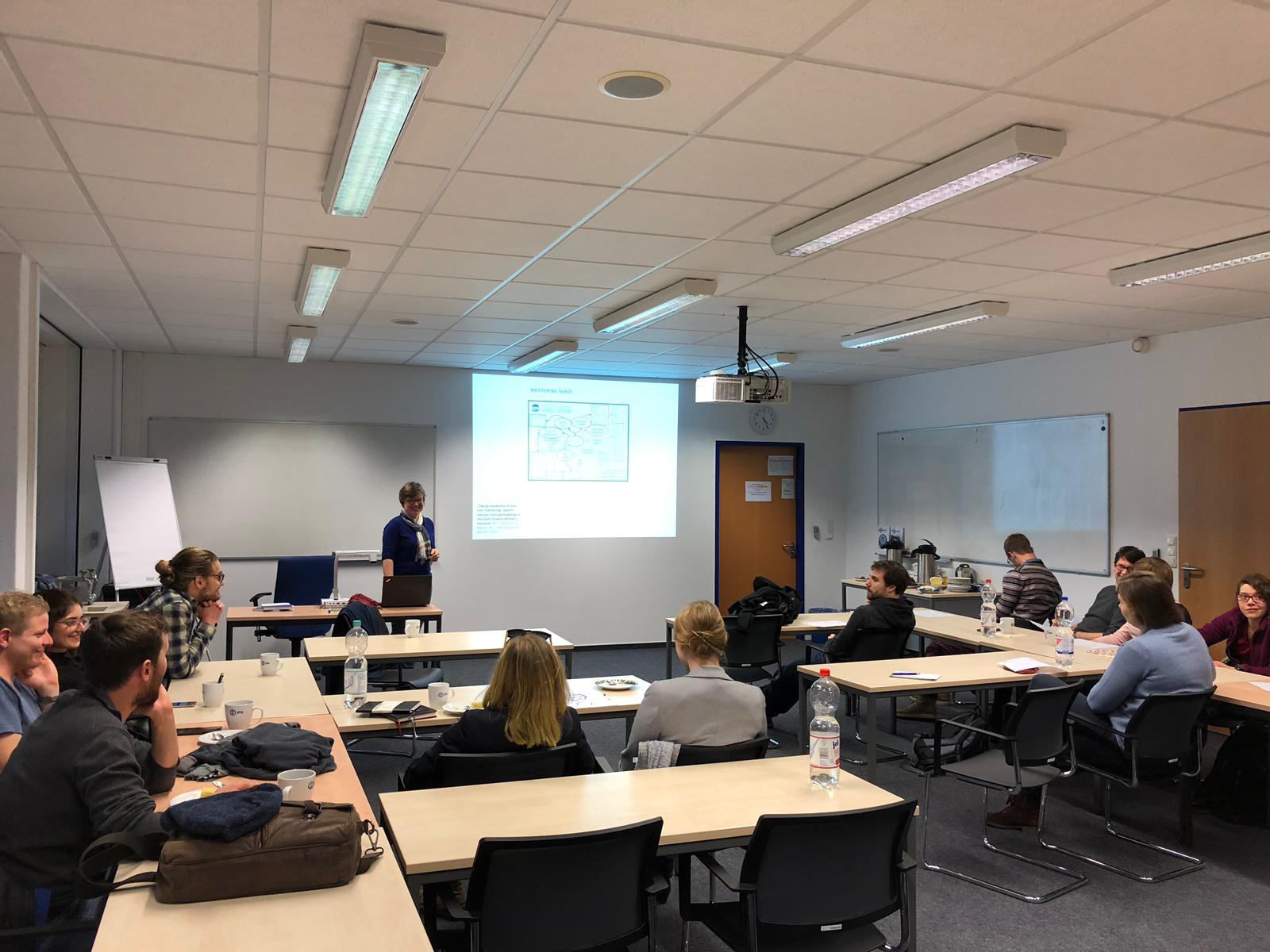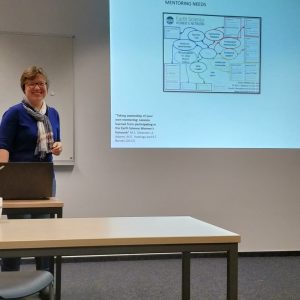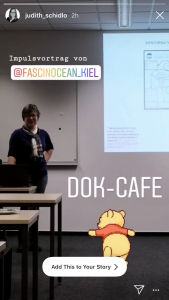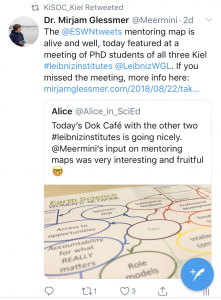
Of timeless relevance: the ESWN mentoring map and how you can provide mentoring to others at any career stage

Me realizing that there are three cameras aimed at me simultaneously at some point during my presentation (Picture: Sara Siebert)
This week I had the honor to be invited to give a talk to a network of PhD students of the three Leibniz institutes in Kiel, which is just forming. Being as big a fan of networking as I am, of course I could not say no to this opportunity, especially since I had a really good resource to share: The Earth Science Women’s Network‘s mentoring map.
The mentoring map is a tool that helps you think about what your mentoring needs are and whether you have a strategy in place to get those needs met. And if you realize you don’t — well, then you might want to read our 2013 chapter to get ideas on what strategies you might want to consider to find intellectual community, sponsors, emotional support, or whatever you just realized you are missing.
Even though during that presentation my focus was on conveying the different kinds of mentoring needs you might have at different points during your PhD journey and beyond, and then on identifying people and resources who might help you meet those needs, one point that I tried to make is that mentoring is not a one-way street. In my experience the best networking advice (and, by building an amazing network around you, also the best advice for how to make sure you have your mentoring needs met) is to pay it forward, to provide to others what you would wish that others provide to you.
Be the kind of person that you would love to have in your own network
This last piece of advice at first sounds like it is really difficult to put into action, and almost unattainable if you are just starting out with your PhD. But it is not. There are so many ways in which you can provide value to others around you, and have that become a habit. A couple of examples, in no particular order:
- Offer to proof-read other people’s writing. Especially when you are just starting out, forcing yourself to read something really carefully, even though it might not be 100% what you need to be reading for your own research, is a great way to widen your horizon and pick up on what you like and don’t like in texts. And if you have to look up grammar rules to make sure your edits are correct — even better, you just learned something for your own writing!
- Check in on people, ask how they are doing, and actually listen to their response. Sometimes only one person noticing that something is off makes a huge difference to someone
- If you come across interesting articles, summer schools, blog posts, twitter profiles, … that remind you of something you talked about with someone or that you think might be interesting to them, just forward it. It takes a couple of seconds on your end, and even if they already got that information through some other route, they will appreciate the thought and effort and are a lot more likely to return the favor next time they see something that might be interesting to you
- Be open about your own ideas, and always give credit to others if you talk about their ideas in front of others
- If you have a network of any kind that might be interesting to others, offer to share it with them. Bring them with you to your work so they can meet interesting colleagues over coffee, give them your mom’s phone number because she can give advice on a topic they are struggling with (Danke, Joke, es ist nicht vergessen), send introductory messages for them
- Similarly, if you have visibility in an area where they are trying to build it, ask them if they would like to write a guest post on your blog, or retweet their tweets to expose your followers to this new and interesting person, or ask them if they want to present a workshop with you
- Follow up with people! Just sending an email saying “Hi! We met at conference x and talked about y and I just wanted to follow up so we can stay in touch” is so much more than most people do, but it has started an interaction that both of you are more likely to remember than if you never followed up
- Remember that most people you meet feel at least as awkward about not knowing you as you feel about not knowing them. Just introduce yourself and maybe ask if they would like to have a coffee sometime! If you’ve been in your job for two weeks and feel like the complete newbie, chances are you still know so much more than the person whose first day it is today and they’d be super grateful if you took them under your wing and showed them how to operate the photocopy machine
What else are habits you would recommend people develop so they become the kind of person you would like to have in your own network? Let me know in the comments!
—
P.S.: Just have to show the pictures below because it makes me proud that there is so much social media activity going on now at my former workplace :-)

